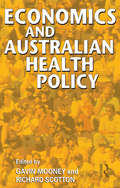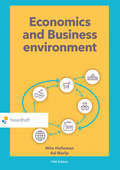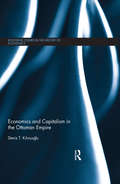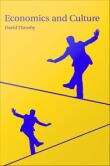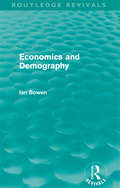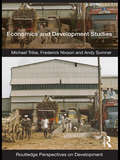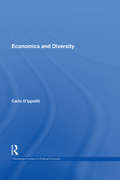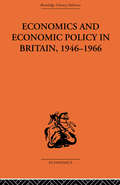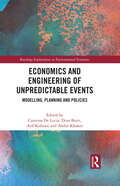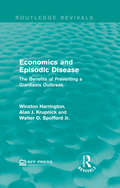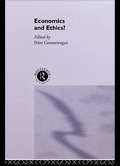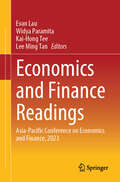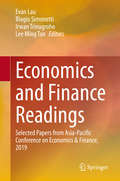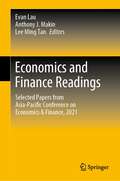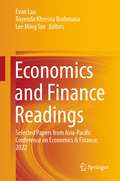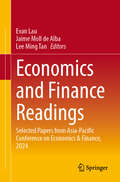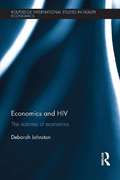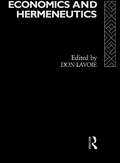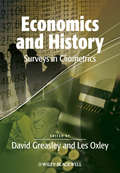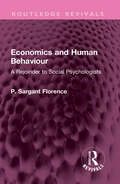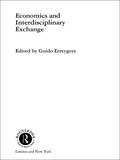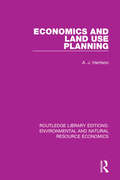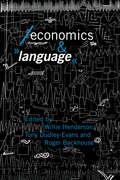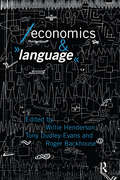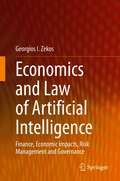- Table View
- List View
Economics and Australian Health Policy
by Gavin MooneyA century ago, health services absorbed few resources and provided little benefit. Since then, advances in medical knowledge and techniques have escalated both the benefits and the costs. The affordability of health services is being questioned in even the richest countries, and the economic aspects of health policy have become ever more intrusive.Australia is no exception, with its health system now absorbing 19% of all government tax revenue. Familiarity with economic issues - such as how to assess health outcomes, how to assign resources efficiently and what financial arrangements will promote equity as well as efficiency - is essential to understanding health policy. This is especially so at a time when the economics of health care are being internationally re-examined, with new forms of competition, challenges to public ownership and case-mix funding of hospitals under scrutiny, and a re-evaluation of the benefits of pharmaceuticals and new technologies underway.Economics and Australian Health Policy offers this understanding to readers with and without formal economic training. It starts with an introduction to both the economic way of thinking about health systems, and the context in which those economic questions are raised - the structure of the Australian health system, its culture and its patterns of financial flows. It then describes and appraises from an economic perspective the major components of the system and the policy issues which arise.This collection has been specially commissioned to address both Australia's most pressing policy issues and the needs of public health and health economic policy-makers, academics, commentators and students. The list of contributors reads like a who's who in Australian health economics, who have been encouraged, clearly successfully, to write accessibly yet with authority and conviction.
Economics and Business Environment (Routledge-Noordhoff International Editions)
by Wim Hulleman Ad MarijsEconomics and Business Environment is targeted at students preparing for a career in a managerial position in business or public service. With its accessible style and convenient structure, this textbook offers an insight into: 1 current economic developments that are important to (European) businesses and governments; 2 the influence of the business environmenton company profit and turnover. Students are offered an insight into the economic risks faced by all companies. This fifth edition of Economics and Business Environment has been fully updated; including the measurements taken to reinforce supervision of the banking industry.
Economics and Capitalism in the Ottoman Empire (Routledge Studies in the History of Economics)
by Deniz KilinçoğluIs it possible to generate "capitalist spirit" in a society, where cultural, economic and political conditions did not unfold into an industrial revolution, and consequently into an advanced industrial-capitalist formation? This is exactly what some prominent public intellectuals in the late Ottoman Empire tried to achieve as a developmental strategy; long before Max Weber defined the notion of capitalist spirit as the main motive behind the development of capitalism. This book demonstrates how and why Ottoman reformists adapted (English and French) economic theory to the Ottoman institutional setting and popularized it to cultivate bourgeois values in the public sphere as a developmental strategy. It also reveals the imminent results of these efforts by presenting examples of how bourgeois values permeated into all spheres of socio-cultural life, from family life to literature, in the late Ottoman Empire. The text examines how the interplay between Western European economic theories and the traditional Muslim economic cultural setting paved the way for a new synthesis of a Muslim-capitalist value system; shedding light on the emergence of capitalism—as a cultural and an economic system—and the social transformation it created in a non-Western, and more specifically, in the Muslim Middle Eastern institutional setting. This book will be of great interest to scholars of modern Middle Eastern history, economic history, and the history of economic thought.
Economics and Culture
by David ThrosbyIn an increasingly globalised world, economic and cultural imperatives can be seen as two of the most powerful forces shaping human behaviour. This book considers the relationship between economics and culture both as areas of intellectual discourse, and as systems of societal organisation. Adopting a broad definition of culture, it explores the economic dimensions of culture, and the cultural context of economics. The book is built on a foundation of value theory, developing the twin notions of economic and cultural value as underlying principles for integrating the two fields. Ideas of cultural capital and sustainability are discussed, especially as means of analysing the particular problems of cultural heritage, drawing parallels with the treatment of natural capital in ecological economics. The book goes on to discuss the economics of creativity in the production of cultural goods and services; culture in economic development; the cultural industries; and cultural policy.
Economics and Demography (Routledge Revivals)
by Ian BowenFirst published in 1976, Economics and Demography discusses how the world population doubled in the thirty years prior to its publication, and considers the economic implications of this demographic transformation. Professor Bowen, with many years’ experience of research into the economic and statistical aspects of population and world development, provides a survey of the population of the world, and of how political economists have explained population growth. The author’s survey looks first at the mechanisms of growth – fertility, mortality, and migration – followed by an account of theories of growth from Adam Smith to the present day. Professor Bowen, a former fellow of All Souls College, Oxford, who taught at universities in England, America, Australia and Asia, writes from the point of view of a political economist rather than a demographer, and Economics and Demography is of particular value to students of development, development economics and demography within departments of economics, economic history and geography.
Economics and Development Studies
by Andy Sumner Michael Tribe Frederick NixsonDevelopment studies textbooks and courses have sometimes tended to avoid significant economic content. However, without an understanding of the economic aspects of international development many of the more complex issues cannot be fully comprehended. Economics and Development Studies makes the economic dimension of discourse around controversial issues in international development accessible to second and third year undergraduate students working towards degrees in development studies. Following an introductory chapter outlining the connections between development economics and development studies, this book consists of eight substantive chapters dealing with the nature of development economics, economic growth and structural change, economic growth and developing countries, economic growth and economic development since 1960, the global economy and the Third World, developing countries and international trade, economics and development policy, and poverty, equality and development economists, with a tenth concluding chapter. This book synthesizes existing development economics literature in order to identify the salient issues and controversies and make them accessible and understandable. The concern is to distinguish differences within the economics profession, and between economists and non-economists, so that the reader can make informed judgments about the sources of these differences, and about their impact on policy analysis and policy advice. The book features explanatory text boxes, tables and diagrams, suggestions for further reading, and a listing of the economic concepts used in the chapters.
Economics and Diversity (Routledge Frontiers Of Political Economy Ser. #145)
by Carlo D'IppolitiThe bulk of contemporary economics assumes rather than explains differences between people or groups of people. Yet, many of these differences are produced by society or they imply differing opportunities and outcomes. This book argues that economists should concern themselves with the explanation of the social causes and effects of such differences. D’Ippoliti introduces the concept of diversity to summarise all differences that are of social origin and that a theory or model seeks to explain. This contrasts with the traditional concept of heterogeneity that instead refers to differences that are deemed to be exogenous of economic theory. In approaching this, the book ranges from the fields of methodology and history of economics to applied empirical work, as well as gender diversity which is considered in depth. The analysis of the thinking of two major economists of the past, John Stuart Mill and Gustav Schmoller, demonstrates how gender diversity exemplifies some of the fundamental issues in economics, such as the division of labour, society’s capacity to reproduce itself, and the role of social institutions and their impact on individual and collective behaviour. The book maintains that growth of GDP and of the services sector cannot be trusted to automatically bring about greater inclusion of women in the labour market. Active policy interventions are needed, spanning from the removal of discrimination to the provision of public services and the establishment of fair competition in the market, along with an improved division of social and political power between the sexes. This work will be of interest to researchers and students focusing on the history of economic thought, labour economics, social policy and gender studies.
Economics and Economic Policy in Britain
by T.W. HutchisonThe first part of the book is devoted to an historical survey of what has been written regarding Britain's policy problems since 1946: problems such as full employment, the sources and methods of controlling inflation and the measures to promote economic growth. At an international level, issues such as economic relations with Europe and the question of devaluation are considered. The subsequent part of the book considers how far economists' recommendations regarding policies have been derived from well-tested theories, or how far they have been based on speculation, guesswork or judgement.
Economics and Engineering of Unpredictable Events: Modelling, Planning and Policies (Routledge Explorations in Environmental Economics)
by Caterina De LuciaIn recent decades, the intensification of unpredictable events including the Covid-19 outbreak, Brexit, trade warfare, religion-inspired terrorism and civil wars, and climate change has resulted in serious loss of human lives and property, a decrease in biodiversity and natural hazards (with long-term negative impacts on environment), and impeded social and economic development. Economics and Engineering of Unpredictable Events: Modelling, Planning and Policies provides an integrated view of the management of unpredictable events incorporating three major perspectives: economic management, environmental planning and engineering models. Contributors from economics, planning, regional science, and engineering address key questions including; How resilient are human societies and their habitats? What should societies do to shift from being vulnerable to being more resilient? And what role should planning and policies play to protect communities and the natural environment? The chapters cover academic debates, conceptual reflections, case studies, methods, and strategy development with particular reference to mitigation and adaptation in face of unpredictable events. This book is of particular interest to readers of economic policy, urban and regional planning and engineering.
Economics and Episodic Disease: The Benefits of Preventing a Giardiasis Outbreak (Routledge Revivals)
by Winston Harrington Alan J. Krupnick Walter O. Spofford Jr.Originally published in 1991, this study uses the 1983 outbreak of Giardiasis in Luzerne County, Pennsylvania as a case study to explore the social costs of waterborne illnesses to a community. With over 6,000 people affected in that particular case, Economics and Episodic Disease emphasises the importance of Federal and State drinking water standards to protect the population from contamination whilst also commenting how regulations can be applied to other areas within public health as well as how to appraise the damage caused to surface water by the release of hazardous substances. This title will be of interest to students of Environmental Studies.
Economics and Ethics?
by Peter GroenewegenIn December 1994, social scientists from the fields of economics, philosophy, political science and anthropology attended a workshop to discuss the current state of the economics-ethics nexus by way of examining both past and contemporary practice. The proceedings of this conference presented a wide variety of attitudes and included an examination of economics and ethics: * from an economist's and a philosopher's perspective * in order to assess the contemporary implications of the relationship * in the late 19th century against the background of a long utilitarian tradition This is a set of stimulating reflections by practitioners - including Chen Liew Ten, Bob Coats and Geoffrey Brennan - on the tricky associations between economics and ethics.
Economics and Finance Readings: Asia-Pacific Conference on Economics and Finance, 2023
by Evan Lau Lee Ming Tan Widya Paramita Kai-Hong TeeThis book is a compilation of the best papers presented at the 2023 edition of the Asia-Pacific Conference on Economics & Finance (APEF), which is held annually in Singapore. It presents the latest research findings in economics and finance and discusses relevant issues in today's world. The book is a useful resource for readers who want access to economics, finance and business research that focusing on the Asia-Pacific region.
Economics and Finance Readings: Selected Papers from Asia-Pacific Conference on Economics & Finance, 2019
by Evan Lau Lee Ming Tan Irwan Trinugroho Biagio SimonettiThis book is a compilation of the best papers presented at the APEF 2019 conference which was held on 25th and 26th July 2019 at the Grand Copthorne Waterfront in Singapore. With a great number of submissions, it presents the latest research findings in economics and finance and discusses relevant issues in today's world. The book is a useful resource for readers who want access to economics, finance and business research focusing on the Asia-Pacific region.
Economics and Finance Readings: Selected Papers from Asia-Pacific Conference on Economics & Finance, 2021
by Evan Lau Anthony J. Makin Lee Ming TanThis book is a compilation of the best papers presented at the 2022 edition of the Asia-Pacific Conference on Economics & Finance (APEF), which is held annually in Singapore. With a great number of submissions, it presents the latest research findings in economics and finance and discusses relevant issues in today's world. The book is a useful resource for readers who want access to economics, finance and business research focusing on the Asia-Pacific region. The APEF 2021 conference was conducted virtually due to the Covid-19 pandemic.
Economics and Finance Readings: Selected Papers from Asia-Pacific Conference on Economics & Finance, 2022
by Evan Lau Lee Ming Tan Rayenda Khresna BrahmanaThis book is a compilation of the best papers presented at the 2022 Asia-Pacific Conference on Economics & Finance (APEF), which is held annually in Singapore. With a great number of submissions, it presents the latest research findings in economics and finance and discusses relevant issues in today's world. The book is a useful resource for readers who want access to economics, finance and business research focusing on the Asia-Pacific region.2023 Asia-Pacific Conference on Economics & Finance (APEF) will take place on the 14-15 Dec 2023 in Singapore.
Economics and Finance Readings: Selected Papers from Asia-Pacific Conference on Economics & Finance, 2024
by Evan Lau Lee Ming Tan Jaime Moll de AlbaThis book is a compilation of the best papers presented at the 2024 edition of the Asia-Pacific Conference on Economics & Finance (APEF), which is held annually in Singapore. It presents the latest research findings in economics and finance and discusses relevant issues in today's world. The book is a useful resource for readers who want access to economics, finance and business research that focusing on the Asia-Pacific region.
Economics and HIV: The Sickness of Economics (Routledge International Studies in Health Economics)
by Deborah JohnstonThis book explains how, and why, economics has been applied to a terrible pandemic, using a range of examples mostly drawn from the region most affected, sub-Saharan Africa. Part I shows that microeconomic approaches have found fertile ground in a public health approach that ‘blames’ individual choices for HIV transmission. Despite their attractiveness, however, these approaches fail to explain contemporary patterns of HIV prevalence, illustrating the importance of factors that are excluded from the standard micro-economic approach. Part II of the book looks at our problems in understanding the economic impact of AIDS, and explains why economists cannot agree if epidemic disease is a good or bad thing for economic development. In both sections of the book, the potential for alternative approaches is shown, and the book ends by arguing that a political economy approach can bring meaningful insights to our understanding of the spread and impact of HIV/AIDS.
Economics and Hermeneutics
by Don LavoieEconomics and Hermeneutics looks at the ways that hermeneutics might help economists address problems such as entrepreneurship, price theory, rational expectations, monetary theory, welfare economics and economic policy.
Economics and History: Surveys in Cliometrics (Surveys of Recent Research in Economics #6)
by Les Oxley David GreasleyEconomics and History presents six state-of-the-art surveys from some of the leading scholars in cliometrics. The contributions are all written at an accessible level for the non-specialist reader and consider a broad range of issues from this highly topical area. Written clearly and comprehensively, allowing easy accessibility for the non-specialist reader Brings together the very latest research in this highly topical subject from leading scholars Contributions cover a broad range of areas within this subject The latest publication in the highly successful Surveys of Recent Research in Economics Book Series
Economics and Human Behaviour: A Rejoinder to Social Psychologists (Routledge Revivals)
by Philip Sargant FlorenceFirst published in 1927, Economics and Human Behaviour is a defence of orthodox economics against the attacks of social psychology. The author has explicated on the characteristics and value of both orthodox economics as well as psychology, and then presented psychology’s criticism against orthodox economics. Before concluding with the limitations of both disciplines, this tiny book reinstates the importance of orthodox economics in the gathering and interpretation of facts. Given the predominance of economics over psychology in current times, this book will be an interesting read for anyone keen on imagining the tables turned. It will also appeal to students of economics, history and psychology.
Economics and Interdisciplinary Exchange (Routledge Studies In The History Of Economics Ser. #No.35)
by Guido ErreygersEconomists have not always been on friendly terms with scientists from other fields. More than once, economists have been accused of 'imperialism' or criticized for neglecting the insights obtained in other fields. The history of economics, however, yields manifold examples of interdisciplinary 'borrowing' where economists have adapted concepts and
Economics and Land Use Planning (Routledge Library Editions: Environmental and Natural Resource Economics)
by A. J. HarrisonThe aim of this book, first published in 1977, is to use the tools developed by modern microeconomics to provide a framework for the analysis of policies towards the allocation of land and the control of activities using land. The principle focus of the book is the general justification for intervention in the urban land and property markets, the principles for evaluating such intervention and the proper role of the public sector within the urban economy. It also considers in some detail the practical problems involved in putting these principles into effect.
Economics and Language (Economics As Social Theory Ser.)
by William HendersonFirst published in 2003. Routledge is an imprint of Taylor & Francis, an informa company.
Economics and Language (Economics As Social Theory Ser.)
by Willie Henderson; Tony Dudley-Evans; Roger BackhouseFirst published in 1993. The importance of language in economics has been neglected and dominated by techniques from other disciplines. This looks at the wider methological implications of language within economics in a practical and theoretical way.
Economics and Law of Artificial Intelligence: Finance, Economic Impacts, Risk Management and Governance
by Georgios I. ZekosThis book presents a comprehensive analysis of the alterations and problems caused by new technologies in all fields of the global digital economy. The impact of artificial intelligence (AI) not only on law but also on economics is examined. In the first part, the economics of AI are explored, including topics such as e-globalization and digital economy, corporate governance, risk management, and risk development, followed by a quantitative econometric analysis which utilizes regressions stipulating the scale of the impact. In the second part, the author presents the law of AI, covering topics such as the law of electronic technology, legal issues, AI and intellectual property rights, and legalizing AI. Case studies from different countries are presented, as well as a specific analysis of international law and common law. This book is a must-read for scholars and students of law, economics, and business, as well as policy-makers and practitioners, interested in a better understanding of legal and economic aspects and issues of AI and how to deal with them.
